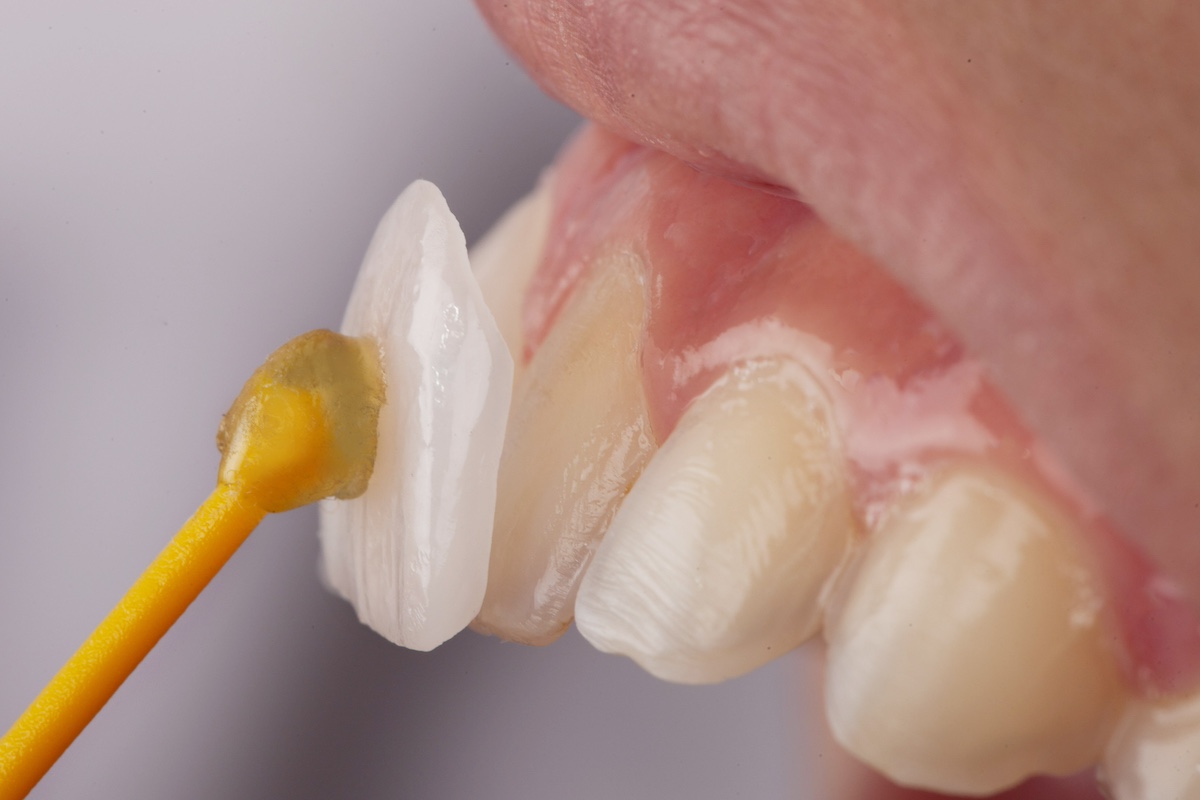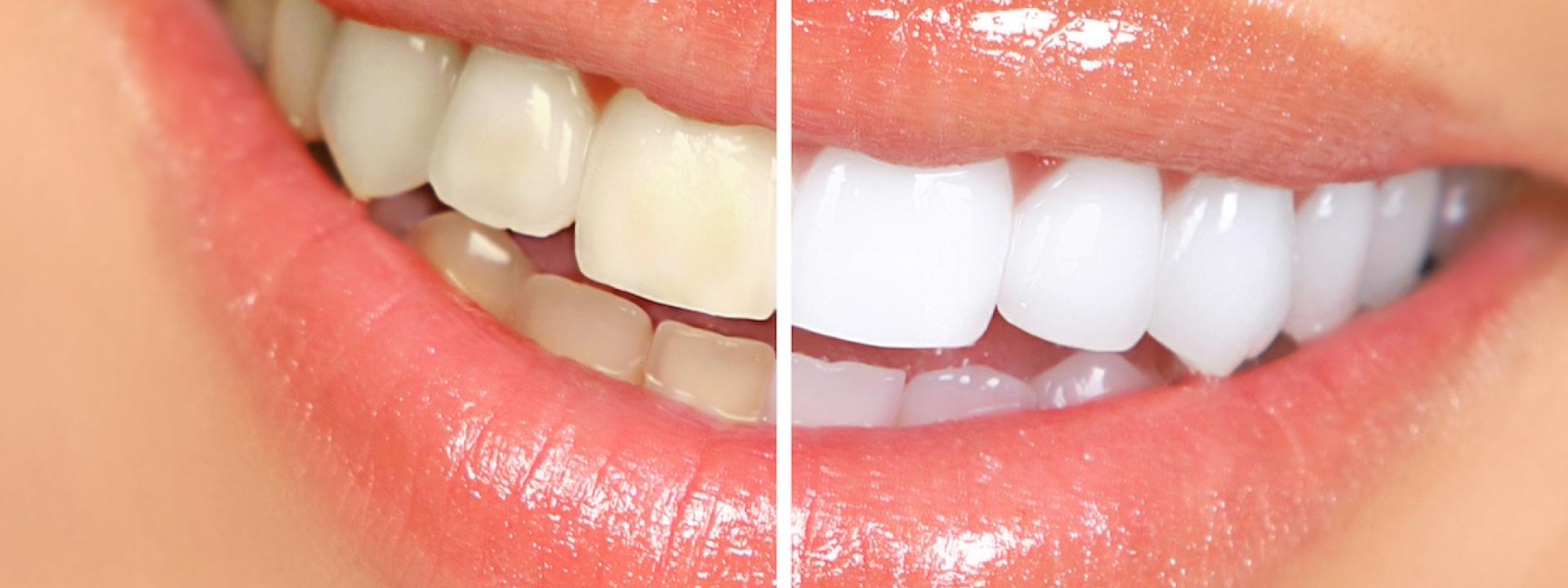In the quest for a perfect smile, you face many choices, and two popular options are teeth whitening and dental veneers. But how do you decide which one is best for you? As dentists, we’re here to provide the answers you need. This article will explore the intricacies of teeth whitening and veneers, equipping you with the knowledge to make an informed decision that aligns with your smile goals. So, whether you’re seeking a dazzling transformation or a subtle enhancement, read on to discover which option is right for you.
Teeth Whitening
Understanding the Whitening Process
Teeth whitening is a non-invasive procedure that harnesses the power of oxidation to remove stains. This process effectively targets both surface and deeper internal discoloration. It involves applying a whitening agent that penetrates the enamel to break down and eliminate stains. Typically, this agent harnesses the whitening power of hydrogen peroxide.
Advantages of Teeth Whitening
One of the primary advantages of teeth whitening is its non-invasive nature. Unlike other dental procedures, it doesn’t require altering your teeth structure in any way. This makes whitening a less intimidating option for many people. Plus, it’s generally cost-effective and provides quick results.
Drawbacks of Teeth Whitening
While teeth whitening can provide an immediate improvement in tooth color, the results are temporary unless you make substantial life changes to prevent stains. Also, teeth whitening may not be suitable for all types of discoloration. If factors like dental trauma or medication caused your staining, it may not respond well to whitening agents. Some individuals may experience tooth sensitivity during or after treatment, but the risk is much lower when having your teeth whitened by a dentist rather than using an over-the-counter whitening kit.
Maintaining Whitened Teeth
Maintaining teeth whitening results requires diligence in oral care. Proper hygiene practices, such as regular brushing and flossing, are crucial to sustain your whiter smile. Periodic touch-up treatments may also be necessary to combat the natural discoloration that occurs over time. Consider giving up common culprits of tooth discoloration, like coffee and red wine.
Dental Veneers

The Veneer Application Process
Dental veneers are a transformative option that involves placing thin porcelain shells on the front surface of teeth. This process requires tooth preparation, typically removing a small amount of enamel. Veneers are highly customizable, allowing you to achieve the desired shape, size, and shade for your teeth.
Advantages of Dental Veneers
Dental veneers offer a comprehensive smile transformation. They are known for their durability and exceptional resistance to staining, and they ensure your new smile remains brilliant and beautiful for years to come. Veneers also excel at concealing various dental imperfections, from chips and cracks to gaps and misalignments. The level of customization they offer means that you can attain the exact look you desire.
Drawbacks of Dental Veneers
One critical consideration with dental veneers is that the tooth alteration involved in the process is irreversible. This means that once you have veneers, you’ll always need them because removing them would reveal altered tooth structure. Additionally, veneers’ initial cost can be higher than teeth whitening. Over time, they may also require replacement due to wear and tear, adding to the long-term financial commitment.
Maintaining Dental Veneers
Like natural teeth, veneers require regular brushing, flossing, and dental check-ups to preserve their appearance and functionality. While they are highly durable, avoiding excessive force or habits like biting hard objects can extend their lifespan.
Deciding Which Is Right for You
When deciding between dental veneers and teeth whitening, consider the following factors:
- Nature of Tooth Discoloration: Determine whether your staining is superficial or if it involves deeper layers of your teeth. Teeth whitening is highly effective for surface stains, while veneers can conceal more significant discoloration.
- Short-term vs. Long-term Goals: Consider your immediate objectives. If you’re looking for quick results for an upcoming event, teeth whitening may be the way to go. However, veneers offer a long-term solution if you’re looking for a lasting transformation.
- Budget and Financial Considerations: Compare the upfront costs of teeth whitening and veneers. While teeth whitening is generally more budget-friendly initially, veneers require a more substantial upfront investment.
It’s crucial to analyze the long-term investment, too. Teeth whitening may require more frequent touch-ups to maintain your desired level of whiteness, potentially balancing out the cost over time.
- Tolerance for Risk and Sensitivity: Consider your tolerance for potential discomfort. Teeth whitening sometimes causes temporary sensitivity, while veneers may involve minor discomfort during the tooth preparation stage.
- Aesthetic Preferences and Customization: Think about the aesthetics you desire. Dental veneers offer unparalleled customization, allowing you to design your dream smile, while teeth whitening provides a more natural look. Whether you prefer the precision of veneers or the subtlety of teeth whitening, the key is to align the cosmetic dentistry procedure with your personal style and preferences.
- Consultation with a Dentist: Before making your decision, it’s essential to consult a skilled dentist. Dentists play a vital role in helping you make the best choice. They will evaluate your unique situation, discuss your goals, and recommend the best treatment plan to help you meet your goals.
Maintenance and Longevity
After undergoing either treatment, proper maintenance is essential to ensure your improved smile withstands the test of time. Teeth whitening necessitates regular touch-ups to maintain your desired level of whiteness. Dental veneers, on the other hand, require ongoing care to preserve their appearance and functionality. Understanding the expected lifespan of both treatments will help you make an informed choice. Your dentist will provide additional instructions for protecting a brilliant smile.
Conclusion

Choosing between teeth whitening and dental veneers is a significant decision when pursuing the perfect smile. By empowering yourself with an understanding of these treatments and seeking professional guidance, you can make a choice that aligns with your goals and preferences. Remember, achieving the smile of your dreams is within reach when you make an informed and thoughtful decision. Contact a trusted cosmetic dentist today to begin your journey toward a smile you’ll be proud to show off.

